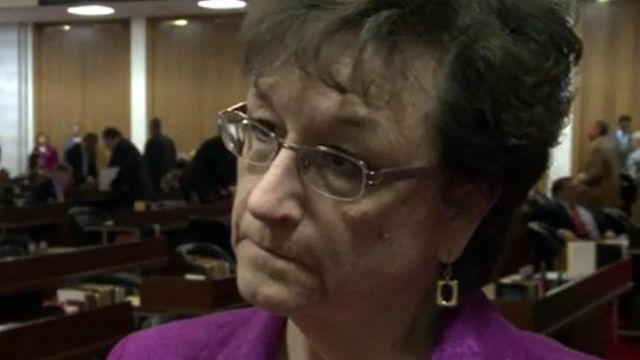Teen tanning ban stalls over dueling data
A proposal to keep N.C. teens out of tanning beds was delayed in the House Health Committee after a tanning bed lobbyist accused a Duke researcher of misinformation.
Posted — Updated"It’s a public health bill. It’s a public safety bill," Hollo told the committee, citing a rise in the incidence of skin cancer since 2000. "Exposure is cumulative over your lifetime. The earlier the exposure, the greater your risk of skin cancer."
The bill has the backing of the American Cancer Society, the North Carolina Medical Society, the North Carolina Pediatrics Society, the North Carolina Oncology Society, the North Carolina Dermatologists and the Child Fatality Task Force, which recommended the legislation.
Duke University Melanoma Center Director Dr. Kelly Nelson delivered a presentation with some graphic photographs of skin cancer – especially melanoma – among young patients who used tanning beds as teenagers.
"This is really why I feel so strongly about the importance of this bill – because patients die from melanoma. Patients who are entirely too young to die die from melanoma," she told the committee.
"There is no debate in the scientific community that UV exposure is related to skin cancer," Nelson said, noting that a sharp uptick in cases of melanoma among young women over the past decade "corresponds to the same shift in the use of tanning devices."
Nelson said the radiation delivered by tanning beds is substantively different than natural sunlight, offering a much higher percentage of UVA rays, which she said are "more tightly linked to the development of skin cancer."
"Young people really need protection, and that’s what this bill is about," she said.
But another presenter accused Nelson of presenting "a tremendous amount of misinformation."
Joe Levy represents the indoor tanning salon trade group International Smart Tan Network Inc. That group wants the law to stay as it is.
Melanoma, Levy told the committee, "does not have direct relationship with sunlight. It is a complex relationship if at all."
"It is not a slam dunk," he added.
Rep. Marilyn Avila, R-Wake, moved "as a scientist" – she was a chemist for Hanes – to postpone the vote until Levy can be given equal time to present his data.
Hollo argued against the delay but said later that he doesn't have a problem with listening to more debate from the other side.
"I think the science is there, but there was disagreement," Hollo said. "I have no problem letting the other side bring it up and bring in more people if they want to, and we will counter it with scientific fact."
Avila, the House's lead budget writer for Health and Human Services, isn't convinced.
Asked whether a lobbyist has the same scientific expertise as Duke's melanoma chief, she responded, "If they use the same sources. You don't necessarily have to be a doctor to be able to find data."
"It's not in his best interest to support something that's going to be detrimental to people's health," she said of Levy.
Avila says there's a study "out there" that suggests tanning beds only increase the risk of melanoma by one-tenth of 1 percent.
If teens are banned from tanning beds, Avila says, they will lie out in the sun instead, where they could risk being sunburned.
"The skin cancer issue is not exposure," she said. "The burning is where the issue comes."
Avila said she doesn't believe the many medical groups who support the ban are misguided.
"But they have a passion, and they see things their way," she added, calling the ban's proponents "emotional."
"You have to be able to stand back objectively and say, 'Yes, there is a problem, but is it this big a problem?'" she said. "We've had scares in the past over things that cause cancer, and we've backed off on them, and I feel like we owe it to the citizens of North Carolina just to be a little more deliberative."
The bill is expected to get more debate and a vote in the House Health Committee next Tuesday.
Related Topics
Copyright 2024 by Capitol Broadcasting Company. All rights reserved. This material may not be published, broadcast, rewritten or redistributed.






